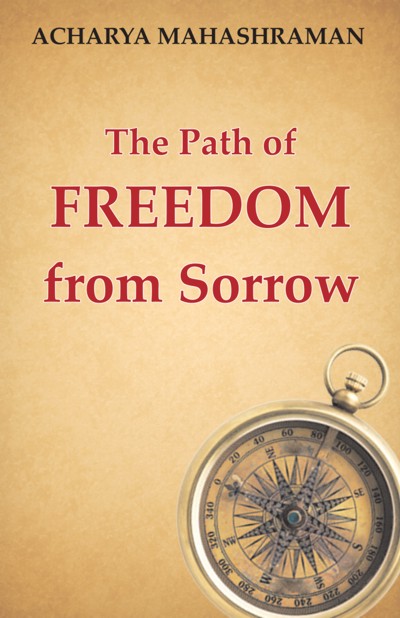Dasvaikalika Sutra articulates that anger destroys love; ego destroys humility; deceit destroys relations and greed destroys all three (love, humility, relations). Greed is such an emotion which is destroyed only after the eradication of first three. In other words, the preceding three kashay survive on the cornerstone of greed.
Though, it is not possible for a layman to become completely free from greed. It is necessary to have control over the instinct of greed and to mitigate its limit. There are three levels of greed.
- Lowest level: This level of greed causes man to harm others or achieve unfair advantages by usurping and dishonesty.
- Intermediate level: Greed of this category does not push people to harm others to earn and satisfy his desires. But people do have avarice of making money and other cravings.
- Higher level: This level of greed does not push man to harm others at any cost and the degree of craving is also very low. In addition he has the desire to donate some share of his earnings.
A man must ask to himself, 'What is the level of my greed? How can I do better at reducing my instincts for greed?' Dasvaikalik Sutra elucidated the antidotes to overcome greed as lobham santoshao jine' - Greed can be conquered through the practice of contentment. The instinct of greed can be lowered by frequent contemplation of non-covetousness, and non-craving and the understanding of the negative consequences of greed. Greed is one of the motives of the unethical actions of man. A man moves on to an immoral path by having intense feelings of greed and wants to reach his ambitions. The two central reasons behind greed are: Poverty and Prosperity.
Food, water, clothing, shelter and medical care, are fundamental needs for human survival. Imagine a family with five members and only one member of the household has the burden of supporting the whole family. However, his earning capacity is very limited. Subsequently, the family cannot be supported adequately. He can select one of the following possible options:
- He can finish his life.
- He can take to a life of dishonesty to satisfy their basic needs.
On this two-way street only a few people choose the first one which is not admirable and a few would accept the second one which is immoral.
We can determine that in such situations, the subject is neither greedy nor does he willingly follow the path of immorality. His behaviour is the outcome of his perceived helplessness. This is immorality induced by helplessness. If he could realize that his basic needs can be satisfied through any other legal or socially acceptable way, he would not accept the immoral path.
The dishonesty induced by the insufficiency or perceived helplessness can be cured by creating a modest balance between poverty and prosperity in the society. Dishonest behaviour on account of a deficiency of means to support one's self can be understood as the effect of helplessness. But dishonesty because of craving is to be rejected completely.
Greed is main reason behind violence. A non-violent person limits his cravings. There are three gradual levels of exercising non-violence.
- The first level is to resolve not to be violent with anyone with the intention of hurting or killing. It is again twofold: a) Avoiding unnecessary violence b) Avoiding necessary violence
- The second level of non-violence is when he purposefully tries not to become the cause of violence of any living being. In other words, he consciously tries to avoid the violence caused by him. For example, while travelling by foot he will be careful about not bringing harm to any living being under his foot. In this way his every move is driven by self-restraint and he abandons violence.
- In the third level man behaves benevolently. He tries his best to remove other's pain and to work for the goodness and welfare of others.
The first two dimensions of non-violence are negative (don'ts) in nature whereas the third one is affirming (do).
Anuvrat Anushasta Acharya Tulsi propounded the 'Anuvrat movement'. This movement is a device to control the vices and to awaken the virtues. Anuvrat does not promise to make the person wealthy who accepts its vows. Instead, it shows the path of a peaceful life. Of course, indirectly it can become a determinant of eliminating poverty.
Through analysis we find that one of the reasons behind the poverty in India is alcoholism. People unfortunately lose a big share of their earnings through pursuing intoxication. Over intake of drugs harm the health also. In attempting to go through rehabilitation with a doctor can be very expensive as well. In this way, man himself knowingly and consciously invites undesirable poverty. The one who has accepted all the code of conducts of Anuvrat eventually becomes free from social vices, which can save him from the poverty caused by straying down the wrong path.
The instinct of greed is manifested in various forms. It can be said that there is no area of life where greed is not rooted. In every single sin greed is always there, however subtle it may be. Several ways to develop the state of non-greed are advised for monks also, appovahi-alpopadhi (minimizing material possessions) is also one of the ways to control greed.
In this context the verse composed by Acharya Tulsi in ' vyavhar bodh is worth mentioning:
Asangrahi muni satiyan, sangrah vritti badhe kyon? Anapekshit ashanka ka sir bhut chadhe kyon? Yadi laghubhutvihari bhari ban jayega phir masti ka jivan kaise ji payega?
This stanza describes that the monks and nuns are non-possessive. They should not inculcate the desire of accumulation. Otherwise there will be no joy in their life.
It's true that disciplined greed opens the treasure of happiness.
 Acharya Mahashraman
Acharya Mahashraman
